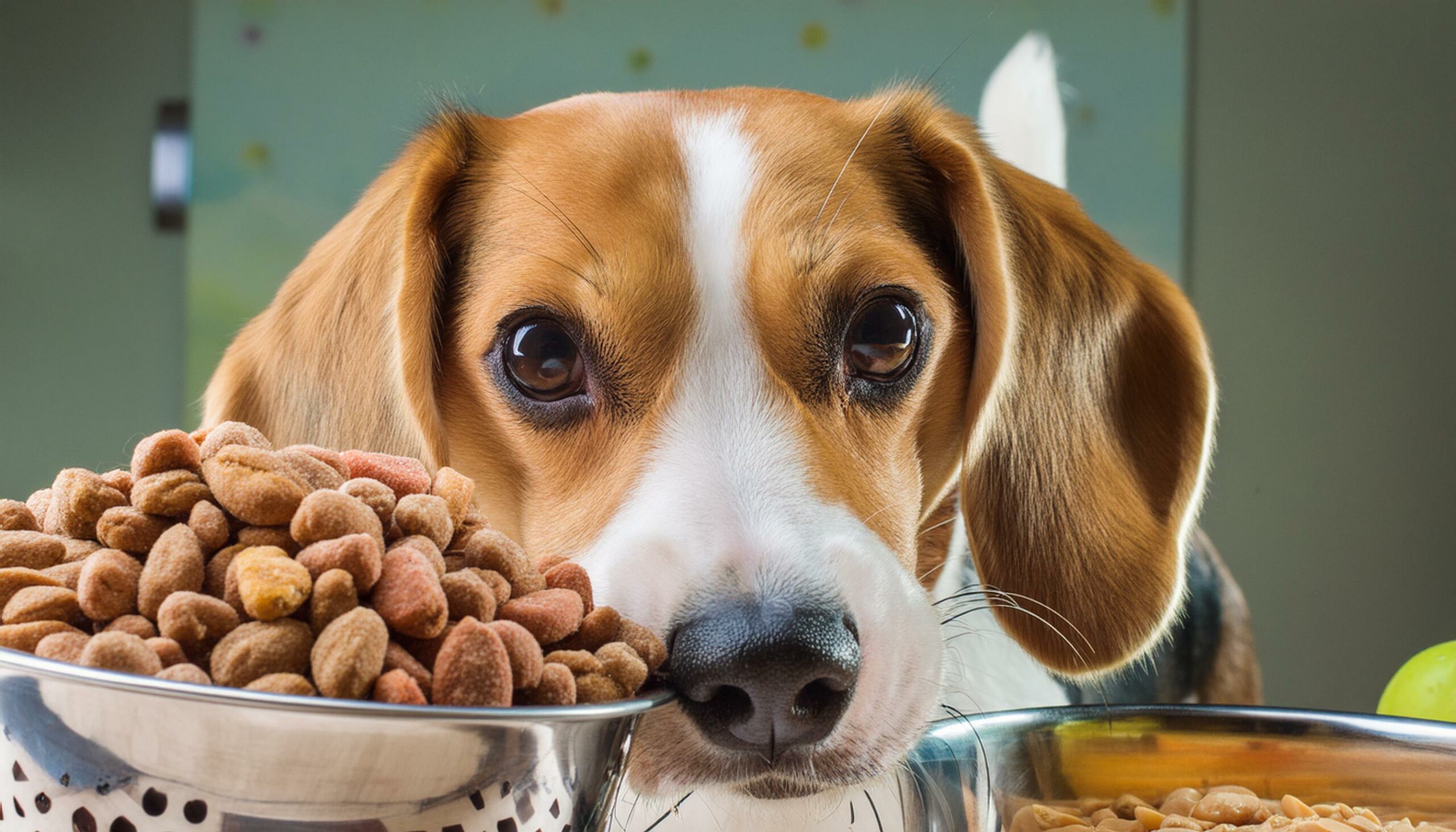Beagles are renowned for their affectionate nature, boundless energy, and, of course, their love for food. As a Beagle owner, understanding what foods your furry friend enjoys and how to provide them with a balanced diet is essential for their overall health and well-being.
Understanding Beagle’s Dietary Needs
Beagles, like all dogs, require a diet rich in essential nutrients to support their growth, energy levels, and immune system. A well-balanced diet consists of protein, carbohydrates, fats, vitamins, and minerals, all of which play crucial roles in maintaining optimal health.
Factors Influencing Beagle’s Food Preferences
A Beagle’s food preferences can be influenced by various factors, including their natural instincts, previous experiences, and individual tastes. With their roots as hunting dogs, Beagles may be drawn to flavors that mimic their ancestral diet. Additionally, past encounters with certain foods and unique preferences shape their culinary likes and dislikes.
Common Food Choices for Beagles

When it comes to selecting food for your Beagle, opting for high-quality ingredients is key. Protein-rich sources such as chicken, beef, and fish provide essential amino acids for muscle development and repair. Complex carbohydrates from sources like brown rice and sweet potatoes offer sustained energy, while healthy fats from sources like salmon and coconut oil support skin and coat health.
Beagle’s Favorite Foods
Beagles have diverse palates and may enjoy a variety of foods. However, some favorites among these food-loving pups include lean meats like chicken and turkey, cooked vegetables such as carrots and green beans, and fruits like apples and blueberries. Treats like peanut butter and cheese are also often met with enthusiastic tail wags.
Homemade vs. Commercial Diets
Both homemade and commercial diets have their merits when it comes to feeding your Beagle. Commercial dog foods offer convenience and are formulated to meet your pet’s nutritional needs. However, some owners prefer homemade meals to have more control over ingredients. Whichever option you choose, it’s essential to ensure that your Beagle’s diet is balanced and meets their specific requirements.
Introducing New Foods to Beagles
When introducing new foods to your Beagle’s diet, it’s important to do so gradually to prevent digestive upset. Start by incorporating small amounts of the new food into their meals and monitor their response closely. Look out for any signs of food allergies or intolerances, such as itching, vomiting, or diarrhea, and consult your veterinarian if necessary.
Tips for Feeding Beagles
To keep your Beagle healthy and happy, consider the following feeding tips:
- Practice portion control to prevent overeating and obesity.
- Divide their daily food intake into multiple small meals to maintain energy levels.
- Always provide access to fresh, clean water to keep them hydrated.
- Monitor their weight and adjust their diet as needed to prevent obesity or excessive weight gain.
Special Dietary Considerations
As Beagles age or if they have certain health conditions, their dietary needs may change. Senior Beagles may benefit from diets tailored to their age and activity level, while those with allergies or sensitivities may require specialized diets formulated to address their specific needs. If you’re unsure about what diet is best for your Beagle, consult with your veterinarian for personalized recommendations.
Training Treats for Beagles

When training your Beagle, using healthy, low-calorie treats can be an effective way to reinforce good behavior. Consider using small pieces of cooked chicken or turkey, freeze-dried liver, or crunchy vegetables like baby carrots as rewards. Alternatively, you can make homemade treats using simple recipes with dog-friendly ingredients.
Food Safety Measures
To keep your Beagle safe, follow these food safety measures:
- Store their food in a cool, dry place to prevent spoilage and contamination.
- Avoid feeding them foods that are toxic to dogs, such as chocolate, grapes, onions, and certain nuts.
- Be mindful of bones, as they can pose a choking hazard or cause intestinal blockages.
Consulting a Veterinarian
For personalized dietary advice and guidance, consult with your veterinarian. They can assess your Beagle’s individual needs and health status and provide recommendations tailored to them. Whether you have questions about their diet or concerns about their health, your veterinarian is your best resource for ensuring your Beagle leads a happy and healthy life.
Conclusion
Understanding what foods Beagles love to eat is a delightful journey that combines their natural instincts, past experiences, and individual preferences. By providing them with a balanced diet rich in quality ingredients and tailored to their tastes, you can ensure that your Beagle remains healthy, happy, and eager for mealtime.
FAQs
What if my Beagle is a picky eater?
If your Beagle is a picky eater, try offering a variety of foods and textures to see what they prefer. You can also try mixing their regular food with new ingredients to entice them.
Can I give my Beagle human food as treats?
If your Beagle is a picky eater, try offering a variety of foods and textures to see what they prefer. You can also try mixing their regular food with new ingredients to entice them.
How can I tell if my Beagle is overweight?
You can tell if your Beagle is overweight by examining their body condition score and monitoring their weight regularly. If you’re unsure, consult with your veterinarian for guidance on managing your Beagle’s weight.
Are there any foods Beagles should avoid entirely?
Yes, some foods like chocolate, grapes, onions, and certain nuts are toxic to Beagles and should be kept out of reach at all times.
How can I improve my Beagle’s appetite?
If your Beagle has a poor appetite, try feeding them smaller, more frequent meals, offering a variety of foods, and ensuring they get enough exercise. If the problem persists, consult with your veterinarian for further evaluation and advice.
